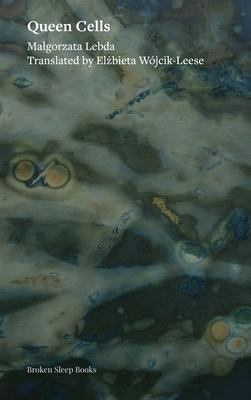Dedicated to soil, Queen Cells contains thirty-one poems, in both their native Polish and translated English, arranged in four sections. These poems span a seasonal year in the life of one family and one small village, Żeleźnikowa Wielka, in the Beskid Mountains of southern Poland. This village, with its fields, forest, slaughterhouse and neighbours, becomes the book's protagonist. The important figures of father and mother, of animals (bees, cows, dogs), of fire and water contribute to the communal and private rituals of love, illness, healing, death. Malgorzata Lebda's writing is organic, unflinching yet tender, and Elżbieta Wjcik-Leese's translations provide readers with a vivid, immediate way into this poet's dark and luminous world.

Dedicated to soil, Queen Cells contains thirty-one poems, in both their native Polish and translated English, arranged in four sections. These poems span a seasonal year in the life of one family and one small village, Żeleźnikowa Wielka, in the Beskid Mountains of southern Poland. This village, with its fields, forest, slaughterhouse and neighbours, becomes the book's protagonist. The important figures of father and mother, of animals (bees, cows, dogs), of fire and water contribute to the communal and private rituals of love, illness, healing, death. Malgorzata Lebda's writing is organic, unflinching yet tender, and Elżbieta Wjcik-Leese's translations provide readers with a vivid, immediate way into this poet's dark and luminous world.
Paperback
$16.99